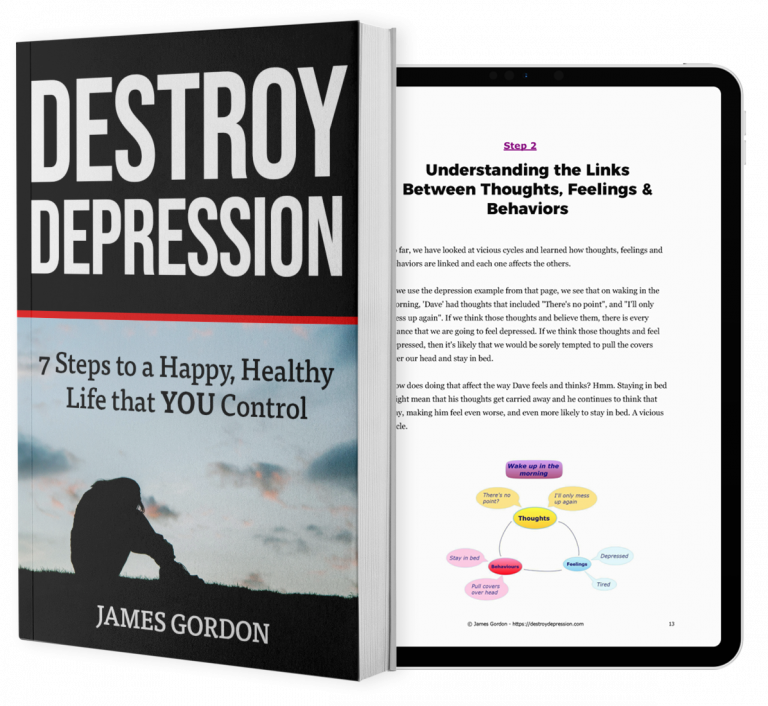Depression is a serious mental health condition affecting millions of people worldwide. It’s not just „a bad day“ or temporary sadness. It’s a persistent state that affects thoughts, emotions, and behavior, and can significantly impact a person’s quality of life. Understanding depression, its symptoms, and treatment options is crucial for those who suffer from it—and for their loved ones.
What Is Depression?

Depression is marked by ongoing feelings of sadness, hopelessness, helplessness, or worthlessness. These feelings often worsen over time, leading to deep emotional pain, self-doubt, and despair.
It is one of the most widespread mental health disorders, affecting over 350 million people globally. Despite how common it is, depression often carries a stigma, discouraging people from seeking help. Shockingly, less than half of those affected receive any form of treatment.
Chronic, moderate, or severe depression can cause serious suffering, disrupt work, damage relationships, and even harm physical health. In its most severe form, it can lead to suicide. An estimated 1 million people die by suicide each year, many of whom struggle with major depressive disorder. According to the World Health Organization, depression was projected to become the second leading cause of premature death globally by 2020/2023, just behind heart disease.
Common Symptoms of Depression
Symptoms of depression may vary, but frequently include:
- Feelings of hopelessness and helplessness: A bleak outlook on life, believing things won’t improve.
- Loss of interest in daily activities: Hobbies, social life, or intimacy no longer bring joy.
- Changes in appetite or weight: Significant weight loss or gain (more than 5% in a month).
- Sleep issues: Insomnia or excessive sleeping.
- Anger or irritability: Feeling agitated, restless, or even aggressive.
- Low energy and fatigue: Everyday tasks feel exhausting or overwhelming.
- Self-loathing and guilt: Harsh self-criticism or overwhelming guilt.
- Risky behavior: Substance abuse, reckless driving, or other impulsive actions.
- Difficulty concentrating: Problems with focus, memory, or decision-making.
- Unexplained aches and pains: Headaches, back pain, or digestive issues.
What Causes Depression?
Depression can arise from many factors, often in combination:
- Personal factors: Low self-esteem, perfectionism, chronic stress, and negative self-talk can increase vulnerability.
- Genetics and family history: Depression can run in families, but genes alone don’t determine one’s mental health.
- Serious medical conditions: Chronic illnesses and pain can contribute to or trigger depression.
- Substance use: Alcohol and drug abuse can both cause and worsen depressive symptoms.
Treatment Options for Depression
Treating depression depends on the individual and the severity of their condition. Common approaches include:
1. Medication
Antidepressants are widely prescribed to manage depression by influencing brain chemicals called neurotransmitters. While helpful for some, they can have limited effect on mild cases and often come with side effects like weight changes, sleep issues, sexual dysfunction, and even increased suicidal thoughts in the early stages. It’s vital to understand that medications manage symptoms, not cure depression.
2. Therapy
Psychotherapy, especially Cognitive Behavioral Therapy (CBT) and Interpersonal Therapy, is often more effective long-term than medication. It helps individuals identify negative thought patterns, build coping skills, and develop healthier behaviors. While therapy can be transformative, it may be costly and requires commitment to regular sessions.
Alternative and Complementary Approaches
Some mental health professionals and researchers believe that more effective and sustainable solutions to depression exist beyond medication.
- CBT in self-help formats, such as books or online programs, has shown high success rates in managing depression and preventing relapses.
- Lifestyle changes, such as improved diet, regular exercise, and sleep hygiene, can significantly improve symptoms.
- There’s ongoing discussion about why these low-cost approaches are not more widely promoted—some suggest that financial interests in the pharmaceutical industry play a role.
One notable example is a 7-step natural program for managing depression developed by Dr. James Gordon (click here), which combines CBT techniques with dietary and lifestyle adjustments. Advocates of such methods claim they provide a holistic and affordable path to healing without long-term reliance on medication.
Destroy Depression
Depression is like drowning when everyone around you is enjoying the swim. It takes a lot of effort to beat it, however natural solutions can be really helpful. For those having difficulties with depression, is here the Destroy Depression system. Written by James Gordon, a major depression sufferer who struggled with his own depression for 2 decades, it teaches 7 natural steps that he implemented to heal himself and has helped thousands.

Final Thoughts: Hope Is Possible
Depression is complex and deeply personal, but it is also treatable. Whether you choose conventional methods or explore alternative approaches, the most important step is seeking help.
If you’re struggling with depression:
- Talk to someone.
- Explore different treatment options.
- Know that recovery is possible.
You are not alone. With the right support, it’s absolutely possible to heal and live a full, meaningful life—even after depression.



